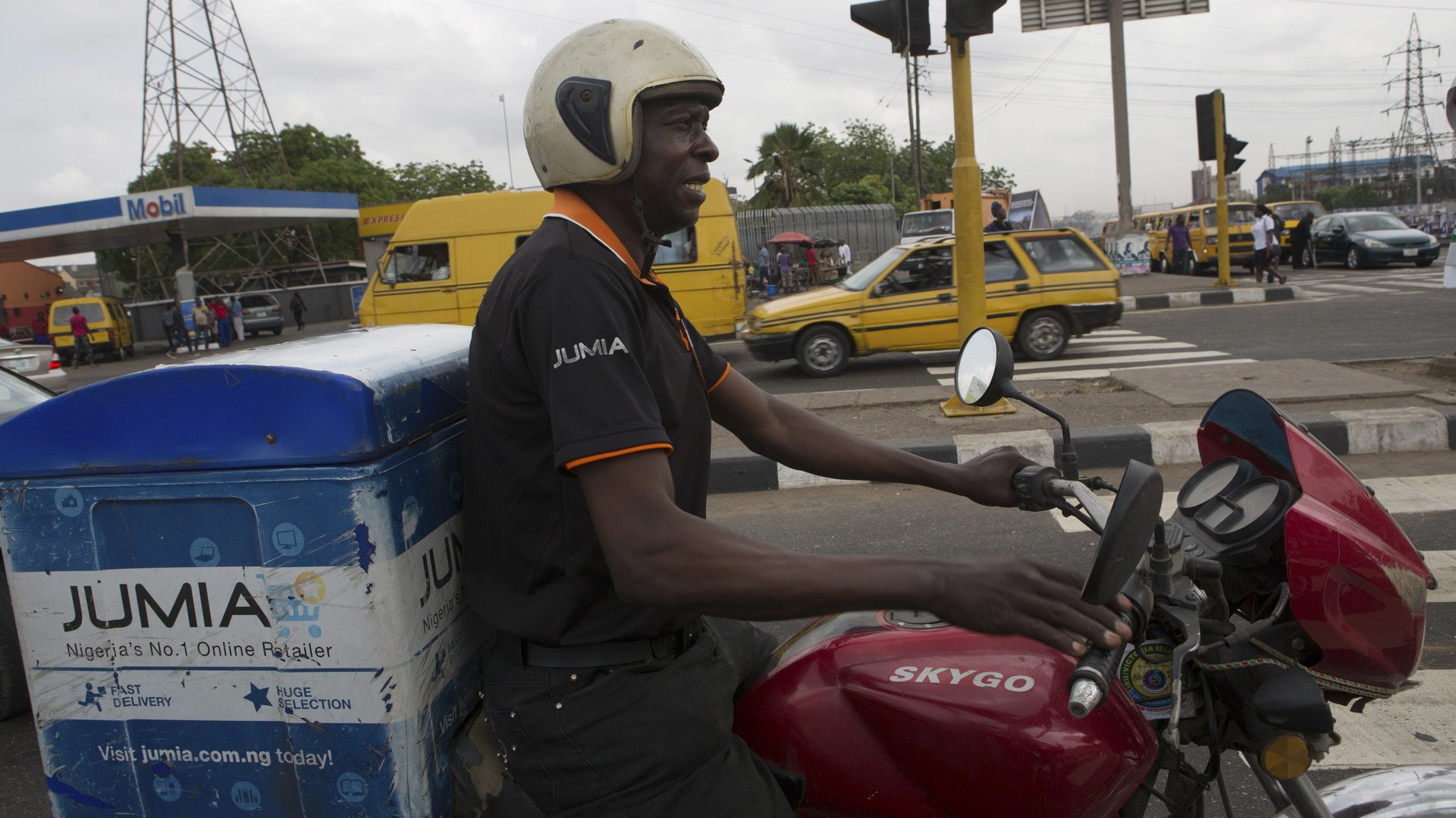How better digital mapping will boost Nigeria’s e-commerce and ridesharing businesses
On the long list of practical challenges with running a business in Nigeria, Africa’s largest economy, logistics rarely makes it near to the top. Instead, some of the most common complaints are around problems with power shortages, talent recruitment and corruption.


On the long list of practical challenges with running a business in Nigeria, Africa’s largest economy, logistics rarely makes it near to the top. Instead, some of the most common complaints are around problems with power shortages, talent recruitment and corruption.
But poor logistics infrastructure is a downside that’s a debilitating part of doing business in Nigeria, particularly in Lagos, the nation’s commercial hub. An already poor road network—which serves a congested city with limited urban planning, particularly in residential areas—has been exacerbated by decades without maintenance.
It means even the most basic home delivery business in Nigeria requires a very hand-on local approach. Trying to locate an address in large swathes of Lagos, especially outside the commercial districts, typically involves stopping and asking for directions several times. This is because of everything from inconsistent house numbering to a lack of street names. The lack of comprehensive mapping has been a challenge for modern local businesses in e-commerce like Jumia and Konga and ride-sharing companies like Uber and Taxify.
Even Nigeria’s postal service’s operations have been hobbled. As a result, only 20% of Nigerians currently receive mail at home.
But over the past year especially, digital mapping technology, like Google Maps, have become viable alternatives to help fix that problem. Google’s Maps service has proven popular among young Nigerians and, last year, the service’s user numbers in Nigeria doubled. Some say the spike is linked to the popularity of ride hailing companies operating in major cities. But tech savvy Nigerians are increasingly using the service as well.
Digital mapping has also come in handy for delivery for delivery personnel of e-commerce companies who benefit by completing more orders and improving their margins. Back in the early days, Afolabi Jubilee, a former delivery agent for Jumia, says delivering packages often proved “terrible” for deliverymen “who were not familiar” with several parts of town. Google recently stepped up the service as it launched its Street View feature in Lagos. The feature will allow users to virtually view “10,000 kilometers of imagery” across the city in real time.
Learning from Amazon
Nigeria’s postal service (NIPOST) is also looking to up its efficiency by leveraging technology. NIPOST hopes to increase its delivery to 90% of homes in the country by 2020 and it’s betting on a partnership with British startup what3words, a digital mapping system which simplifies addresses, to reach that target. The addressing system has split the world into 57 trillion 9-square-meter spots and assigned a random three-word phrase to each of them. The premise of what3words is that the three word addresses are much easier to remember and share compared to traditional addresses.
To use the system, anyone sending a package can find the specific three-word phrase for the destination on what3words’ website or app and address the package with the three words. NIPOST will then convert the three-word addresses into GPS coordinates using licensed software from the startup.
If NIPOST’s delivery range and rate vastly improves, it could prove timely given Nigeria’s growing e-commerce industry. With these companies unable to depend on the national post service in the past, they resorted to setting up in-house delivery companies.
But NIPOST will be hoping that by leveraging technology to boost its efficiency, it can become a viable delivery option for e-commerce companies. And it’s got some reason to harbor those hopes: in the US, following a 2013 agreement, the US postal service (USPS) has grown its shipping volume by delivering packages for Amazon. Fast forward to 2017, Amazon now ships around 40% of its deliveries with USPS.